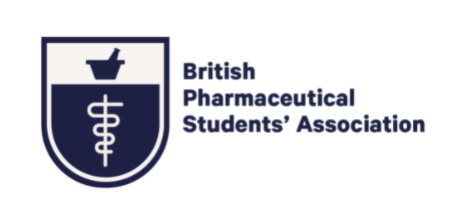Insight: Regulatory Affairs (TOPRA)
The Authors Path
Sylvia Lobo
Sylvia: I graduated in Pharmacy, completed a PhD in medicinal chemistry (not necessary) and after briefly being a locum community pharmacist landed a job in industry managing clinical trials, filing clinical trial applications and completing safety reports. A reorganisation propelled me into local Regulatory Affairs (RA) and three companies later I transitioned into a global role, initially development and now post-marketing orientated – I lead a team of 8.
Vanessa Horne
Vanessa: I worked as an administrative assistant at a pharmaceutical company during my gap year and summer holidays from University. I graduated in Pharmacy and when I qualified as a pharmacist, I worked briefly as a locum pharmacist in community and hospital pharmacy, before returning to the same company at which I did my gap year. After a couple of years there was a restructure and I left to work in a RA role focused on emerging markets. I subsequently moved into the clinical trial group and from there moved into the EU team working on a number of therapeutic areas on products in both development and lifecycle stages. A couple of companies later, I now live in Amsterdam working for a large pharmaceutical company as a global regulatory team lead working to develop new immunology drugs.
Obstacles
There are challenges you can encounter when seeking a role in RA. One major obstacle for entry level candidates is an unfamiliarity with what RA actually is, and therefore matching relevant transferable skills in CVs and interviews. To overcome this, surf the TOPRA website for career information as well as free access to webinars and articles on careers. Reading job advertisements carefully will also help you understand what employers are looking for and likely throw up technical terms which can drive further research e.g. a general understanding of ICH or different types of European procedures (the EMA and CMDh websites are great resources). Often, even entry level positions ask for experience: some companies offer summer placements or work experience opportunities via degree courses with a placement year. Their company websites, as well as the MHRA website, and your university can tell you what is available.
Regulatory Roles
Regulatory affairs offers a vast array of opportunities. Local RA focuses on the country level and direct engagement with governments while Global RA is often sub-divided into major regions: EU, US, Emerging Markets (may be referred to as Rest of World). Transition from local to regional to global is possible as is switching regions. Global and Regional RA can work directly with governments and/or through the local offices. In comparison to these more fluid career paths, CMC is a specialist area focusing on chemistry, pharmaceutical development and manufacturing; switching is rarer but certainly possible. Amongst the local, regional and global roles sit other specialisms such as clinical trials, veterinary medicines and medical devices. In addition, different types of products (small molecules, biologics, ATMPs and biosimilars), or therapeutic areas offer additional opportunities to specialize or broaden your experience.
RA ultimately combines science and persuasion: the story of drug development, distilled into product information relative to government standards. Subsequent product enhancement and maintenance are critical to a company’s success. For these key reasons RA plays a fundamental role in industry.
Pharmacists in RA
Pharmacists are highly valued by employers of RA professionals because the breadth of degree straddles key elements of drug development (chemistry, pharmaceutics, pharmacology, and clinical use), so engaging with other technical experts and being a patient-centric profession is a unique capability.
TOPRA & the Young Regulatory Professionals SPIN
The Organisation for Professionals in Regulatory Affairs (TOPRA) is a professional body for Regulatory professionals. TOPRA covers all aspects of RA across all regions and is committed to supporting continuing professional development for its members. Educational support through training days and a dedicated MSc are available, along with a biennial Introduction to Regulatory Affairs course and special interest networks (SPIN) that members can join to share experiences, debate and discuss regulatory matters. TOPRA also hosts a jobs page.
Students and pre-registration pharmacists can benefit from TOPRA membership in a number of different ways. As outlined above, one of the main benefits is the constant support and professional development that TOPRA members can take advantage of. TOPRA actively works to support new regulatory professionals via careers fairs (student members of TOPRA get to go for free), and hosts webinars on how to break into RA. The SPIN for Young Regulatory Professionals specifically focuses on supporting entry into a RA role regardless of background. This group also has an interactive message board to facilitate discussion. Both authors are currently members of the steering committee for this SPIN group. At its core is the firm belief that regulatory professionals can have very exciting careers!


